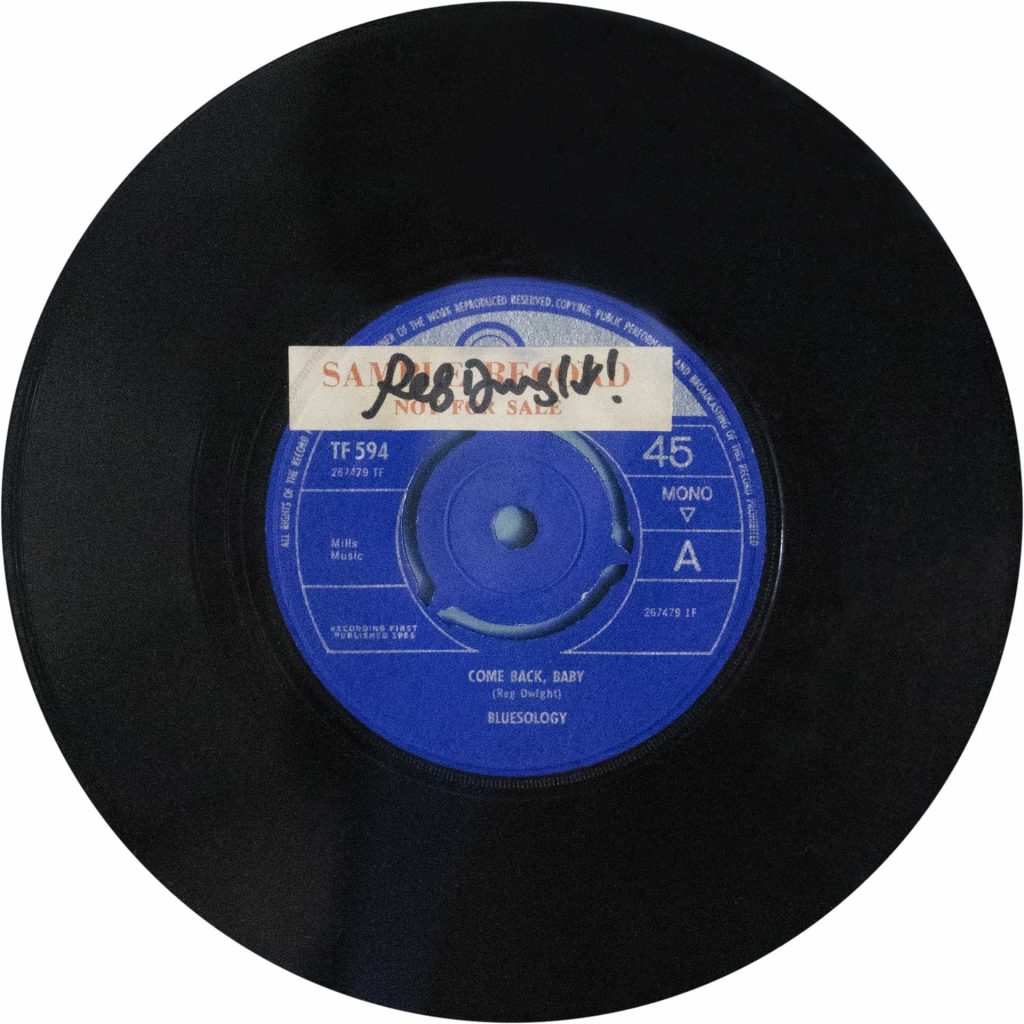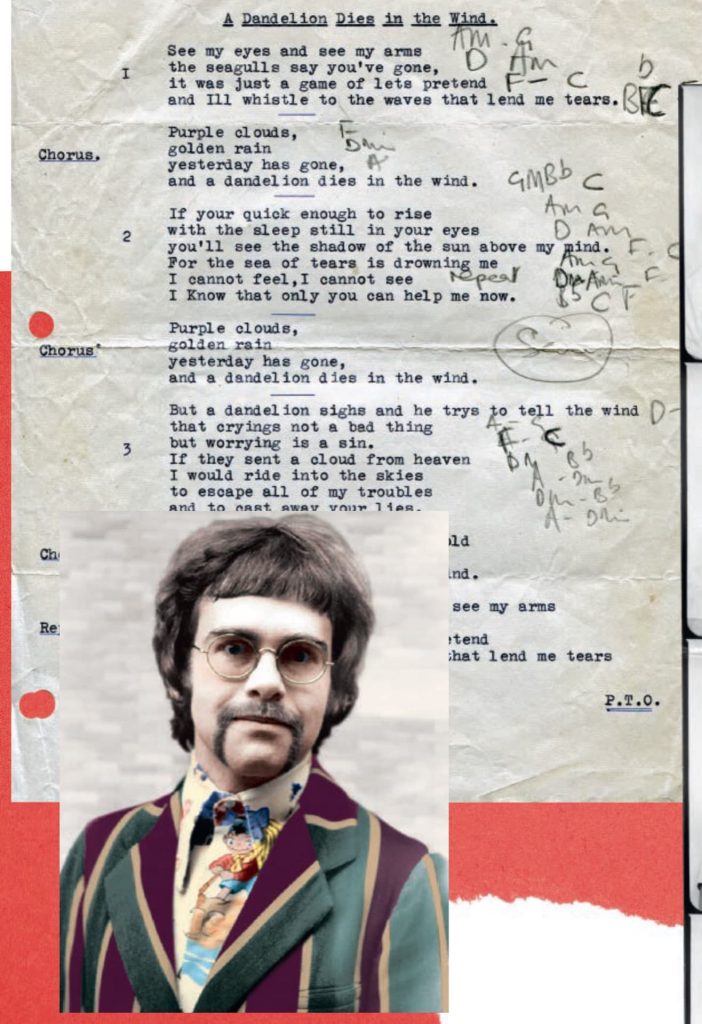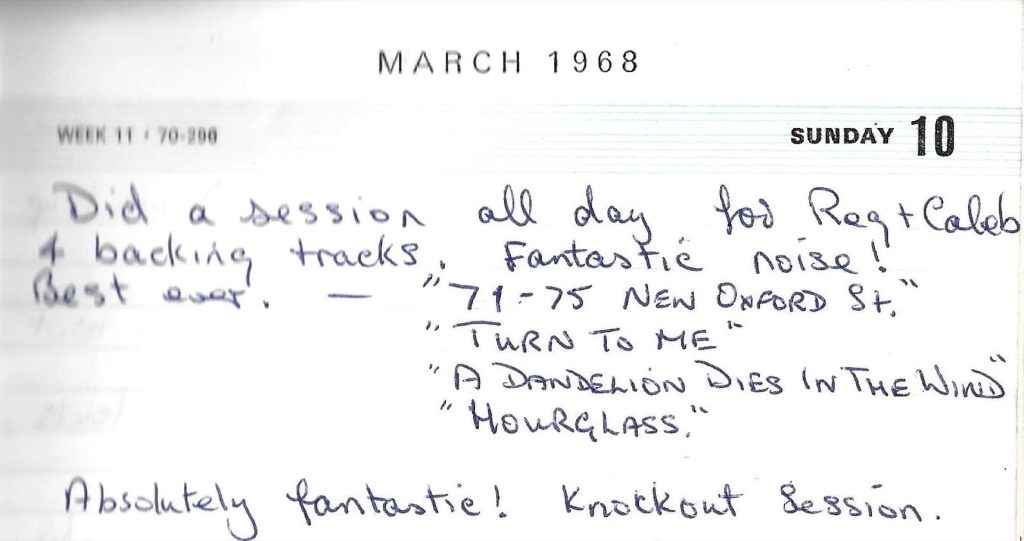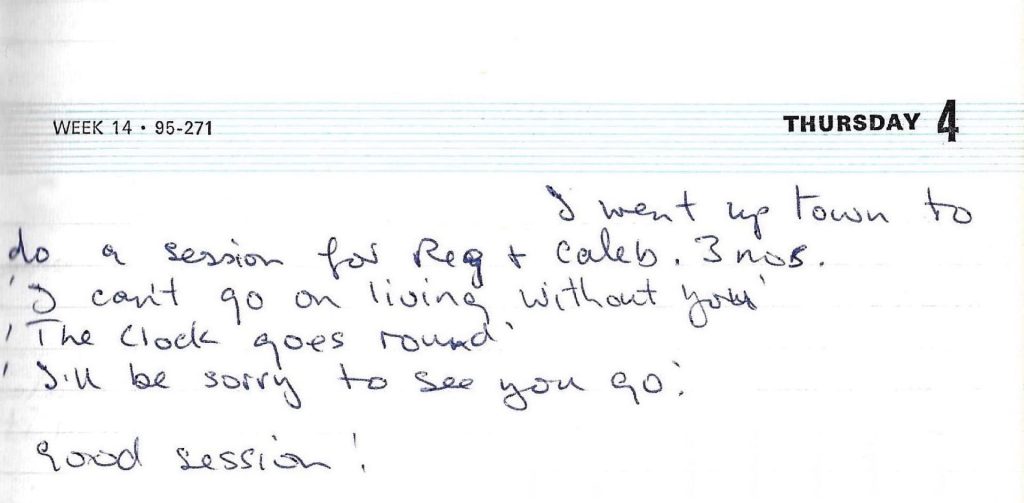Menu
Elton: Jewel Box – Rarities
To celebrate Elton’s birthday, all songs from Elton: Jewel Box are now available to listen on streaming services, including ‘Scarecrow’ and other rarities such as ‘Smokestack Children’, ‘Two Of A Kind’ and more.
So what better time to take a deep dive into the rarities included on Jewel Box.
By John F. Higgins
Elton John’s complete recording output includes 33 studio albums, a multitude of associated singles, non-LP B-sides, and other free-floating tracks, five live concert albums, various film soundtracks, stage shows, and numerous Greatest Hits and other collections. All in all, a vast gathering of material that would be the envy of any recording artist, past or present, and one that has been keenly collected by fans across multiple generations from all across the world.
As of this writing, his catalog is comprised of:
★ 587 unique song titles released by Elton.
★ 129 songs released in collaboration with or by other artists.
★ Another 30 songs written or co-written by Elton but only released by other artists.
Astonishingly, with the release of Elton: Jewel Box, that tally exploded by nearly ten percent, as 61 unreleased recordings are included on the box set’s three Rarities discs. (Another four obscure songs from previous 45s are also enclosed.) It is upon these tracks, all recorded from 1965 to 1971, that the foundation on which absolutely everything else since, from his first non-album UK singles and debut LP, Empty Sky, through his most recent studio album, Wonderful Crazy Night, and the Oscar-winning song from Rocketman, (I’m Gonna) Love Me Again, is built.
It took me back to all those years ago when Bernie and I first met and we were at Dick James Music. It was so beautiful to listen to the naiveté of some of the songs and the way that we progressed as songwriters.
The material on the Rarities discs can be divided into five categories:
★ The two Bluesology tracks written by Elton.
★ Dick James Studio (DJS) recordings done before Elton was signed to a contract.
★ DJS recordings done after he was signed but before he began releasing his own material.
★ DJS recordings done after he released his first single in March 1968.
★ Demos of songs that would later appear on his singles and albums.

Reg Dwight, still only in his teens, was the organist/pianist in a band comprised of a handful of mates from the area in which he grew up: Pinner/Northwood Hills. Bluesology never said no to a gig and, when they saved up enough money, they plugged their gear into the amps at Jackson Recording Studio in Rickmansworth, and six months later, Philips Studio in London.
The resulting A-sides, Come Back Baby and Mr. Frantic, both written and sung by Reg and thus Elton’s first-ever recordings and released songs, open Jewel Box’s CD 3: Rarities Part One: 1965-1968. This is the first release of Mr. Frantic on an Elton album or collection.
The next dozen or so titles, at least, in Rarities are a direct result of an ad in New Musical Express dated June 17, 1967: “Liberty Wants Talent”. After receiving Bernie’s writings by post and auditioning Reg in his office, Liberty A&R man Ray Williams paired the musician and poet…as if he had an Ouija board hidden in his desk at 11 Albemarle Street.

Through a series of events that are wonderfully detailed by Daryl Easlea in the book that comes with the box set’s CD and Rarities & B-Sides vinyl editions, these early tracks were recorded during late-night sessions at the Dick James Studios, starting in mid-1967, at 71-75 New Oxford Street, before the Beatles publisher even became aware of the existence of Reg Dwight. We have guitarist Caleb Quaye, who ran the studio at the time and produced/engineered nearly every song on the Rarities discs, to thank for making the studio, instruments, musicians, and tape, available to the future Elton John during countless off-the-books hours.
The first of these songs, Scarecrow, A Dandelion Dies On The Wind, and a handful of others, were written before Elton and Bernie had even met; Scarecrow was written on or just before August 10, 1967. Somehow the songwriting chemistry survived Royal Mail and the lad from Lincolnshire and pianist from Pinner’s creative connection flourished from the start.
In the autumn of 1967, Reg and Caleb’s surreptitious sessions were discovered and the jig was very nearly up before it began. However, thanks to Caleb supporting them to Dick James (“I thought I was going to get fired! I said, ‘But please take a listen to these…I think there’s something there.'”), Elton and Bernie, who had by now begun sharing bunk beds in Elton’s room at his mother’s Northwood Hills home, were soon signed to a writing contract, and Elton to a recording deal.
The very first rung was us starting out. We were purloining from what was currently popular and trying to find our feet. Lyrically, it’s more charming than pretentious. It’s very pie in the sky, but you can see the roots of something taking shape.
Since the 1970s, some of the titles on the Rarities discs have made their way, via bootlegs, into the collections of überfans. Needless to say, the goal in officially releasing these five dozen songs was to not only provide improved sound quality but also include a number of tracks that have remained a total secret over the past 50-plus years (even Elton and Bernie were surprised when it came time for them to explore the proposed collection) and, when possible, provide alternate versions of some of the ones that had “escaped”.
Pretty much every song written during these very early days went through at least two, sometimes three, iterations during the recording process. First, there was the writing demo, typically just Elton on piano and vocal, with the occasional tambourine or percussion thrown in. The first 14 DJS recordings on Rarities fall in this category.
If the song was deemed worth taking to the next level, even while new ones were being created at a pace that now stuns the songwriters to ponder, a band demo was developed. Generally, the musicians involved for these were:
★ Elton: vocals, piano, electric piano, organ, harpsichord
★ Caleb Quaye: acoustic/electric guitars, tambourine, flute, backing vocals
★ Dee Murray and others: bass, backing vocals
★ Dave Hynes and/or Roger Pope: drums
★ Kirk Duncan, Nicky James, and others: backing vocals and percussion
Lastly, if the tune warranted it, a new layer might be added: strings and/or horns. Starting in February 1968, Elton and Caleb brought the orchestra – and the orchestrator, Zach Laurence – in for When The First Tear Shows, Tartan Coloured Lady, and other assorted “arranged band” demos and final versions. These close out Rarities Part One, showing the professional progress that had been made from the initial, simpler recordings, and are scattered amongst the multitude of unreleased nuggets on Parts Two and Three.
It is also towards the end of Rarities Part One that we begin to hear tunes that eventually, after being re-recorded, made it out on now-hard-to-find official releases. For example, a piano/tambourine workup of Here’s To The Next Time, eventually re-recorded for the B-side to Elton’s first single, and two demos of songs that were later issued on a rare Portuguese four-track 7” EP from 1968: Angel Tree and Thank You For All Your Loving.
It is during this time, as Elton was beginning to release his own recordings on singles and, subsequently, LPs, that the creative team began to hit full stride.
Rarities Part Two: 1968 continues the dizzying mixture of songs that have never before been heard in any format as well as a few demos of tunes that might be vaguely familiar to only the most avid of Elton collectors.
In the former category, we have titles like Bonnie’s Gone Away and Just An Ordinary Man. Both were discovered on tapes that had been found in the archives whilst searching for the best versions of other songs during the making of Jewel Box.
The latter classification includes an arranged demo of I Can’t Go On Living Without You (covered by Lulu for the 1969 Eurovision Song Contest), the piano demo of Skyline Pigeon (a song that first appeared on Empty Sky and then re-re-recorded as a non-LP B-side in 1973), and a piano/guitar demo of All Across The Havens (the B-side to Elton’s second single). Also in the collection are demos of 71-75 New Oxford Street and Get Out Of This Town (with never-heard-before lyrics), which were both covered by the band Mr. Bloe on a rare 1971 single.
Jewel Box also reveals an obscure bit of Elton trivia: his first album was intended to be released a full year before his actual debut, Empty Sky (1969). Called Regimental Sgt. Zippo, after the Beatles’-influenced track of the same name, the LP was supposed to comprise 12 tracks from this time period. Some of the final recordings from the abandoned effort are included on the Rarities discs, while other titles are represented by earlier iterations.


Rarities Part Three: 1968-1971 closes out this blast through Elton’s past with two previously released but nearly forgotten songs and (unbelievably) even more demos that have remained in the vaults for the better part of five decades.
In 1969, as he was putting momentum behind his own career, Elton was also part of an instrumental combo called the Bread And Beer Band. They released two tracks on a Decca single, Dick Barton Theme (Devil’s Gallop) and Breakdown Blues, both of which have never before appeared on anything but the original rare 7″ vinyl.
Part Three’s Open Your Eyes To The Sun and Slow Fade To Blue, alongside many others on the compilation, will be revelations to even the most hard-core collector. They were surprises to the Jewel Box team, not to mention the pair that wrote them. However, fans will soon be able to get their bearings back a bit with the appearance of some classic album track demos: three from Tumbleweed Connection and another four from Madman Across The Water, including the title track.
The piano demos for the Tumbleweed album join a previously unreleased song intended for that project: Rolling Western Union. The original version of Holiday Inn, a 1971 piano demo for Elton’s fourth studio album, contains a missing verse and slightly altered lyric in the chorus. And the demo for Razor Face, also for Madman, reveals Elton’s strong affection for Monty Python in its vocal lead-in.
The creation of Elton: Jewel Box, and especially Rarities, took the better part of March-August 2020, with the team working primarily by Zoom, due to the global pandemic. Thanks to some heroic research by music historian Mark Lewisohn in 1991 and the newly discovered diaries of Dee Murray, we know more than ever before about the copyright registrations and recording dates of many of the Rarities titles. The recording date for Sing Me No Sad Songs, was discovered after the text was sent to the printers; fans take note, that song was recorded on February 5, 1969. These details are listed, along with additional information and assorted scans of original lyric sheets and other artwork, in the accompanying liner notes book.
Finally, a bit of mind-blowing context: there are 24 Rarities mentioned in this article. That is a lot. However, it still leaves another 41 old-but-new songs left to explore and discuss amongst fans who have long hungered for a collection such as this, as well as those who are, enviably, just starting to discover the scope of treasures found in Elton John’s catalog.
Everyone, take a few hours to explore the very beginnings of Elton John’s songwriting…
And enjoy!
